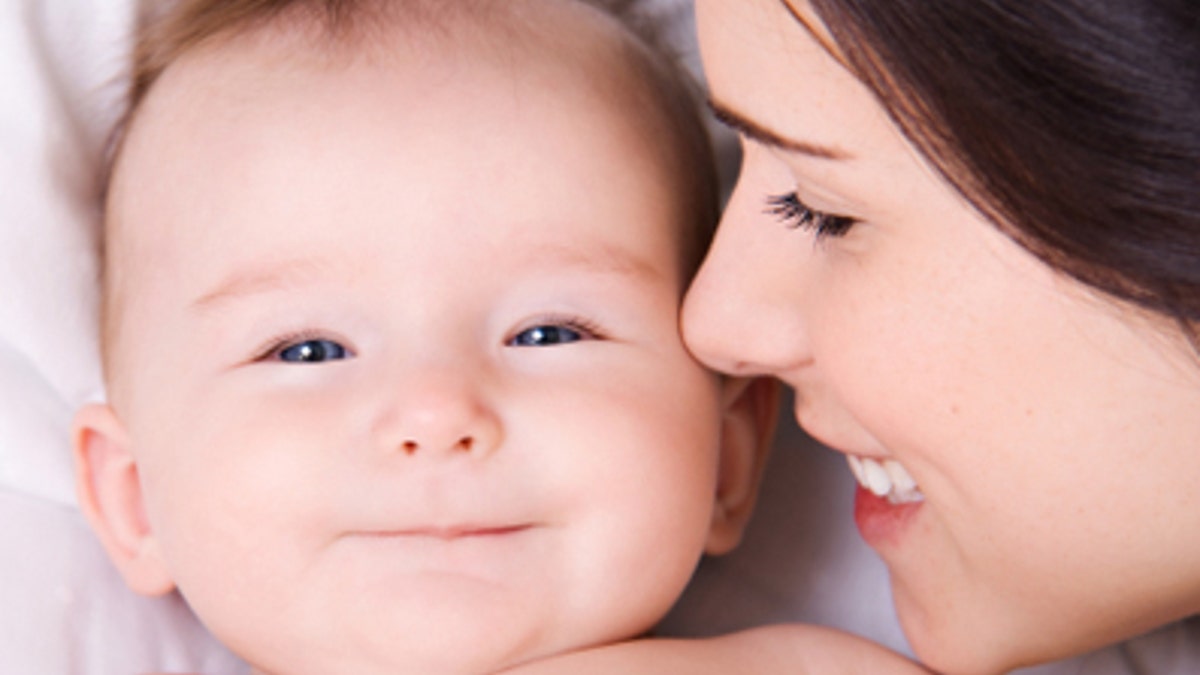
From organic food to eco-friendly fashion and hybrid cars, more and more people, including new parents, are "going green" these days. But, with so much information out there, the lifestyle change can often be overwhelming.
"There are certain things that are obvious," said Dr. Benjamin Kligler, a board-certified family practitioner and director of research at the Continuum Center for Health and Healing in New York City. "For example, watching fish consumption because of mercury is a great place to start from keeping your baby from toxic exposure."
According to the Food and Drug Administration, moderate seafood consumption (12 ounces a week) during pregnancy is OK as long as fish known to be high in mercury, such as shark and swordfish, are avoided.
As many parents know, a good part of the pregnancy is spent getting the nursery ready. This may involve everything from painting to stripping floors. If that's the case, Kligler suggested getting out of the house.
"If there's construction going on in your house, mothers-to-be should probably move out during that time," he said. "Also, use low-volatile oil content paints. The paint doesn't have as much solvents, it's easy to find, and it’s only about five percent more expensive than regular paint."
The bottom line — be aware of what kind of chemicals you're exposing your body to.
"Things get exposed through the skin," Kligler noted. "It's not just about what you eat."
Once the walls are painted — it's time to furnish the nursery. One must-have "green" item is the mattress, according to pediatrician Alan Greene, author of Raising Baby Green: The Earth-Friendly Guide to Pregnancy, Childbirth, and Baby Care.
"The first thing I would choose is an organic mattress because a baby's face is so close to the mattress all day."
If you're wondering what the difference is between an organic mattress and a conventional one — it all comes down to the chemicals. Some of the materials used to make synthetic mattresses include: Flame retardants, polyurethane, foam, polyester, plastic and formaldehyde, noted Greene. He also stressed that children sleep on mattresses for more than 12 hours a day so using a green mattress, free of chemical additives, is important.
Going Organic
Another huge part of going green is what you put in your mouth and your child's mouth.
"If there was one time in a life to have organic food, it's from conception through that first year of life," said Greene.
Here's a list of his Top 5 essential organic foods:
1. If you're going to eat beef, make sure it's organic to avoid all the growth hormones.
2. Organic milk is also a must because of the pesticide and antibiotic use. Some studies have also found organic milk has more antioxidants and healthier fats compared to regular milk.
3. Organic potatoes. Regular potatoes have the highest average amount of pesticides of any produce item — even after peeled and washed, noted Greene.
4. An apple a day — but, only if it's all-natural. Apple trees are often sprayed with organophosphate pesticides which are actually nerve agents used to kill insects. Exposure to this agent can alter brain function and kids are the most susceptible.
5. Soy also falls under this category. Most of the soy crop planted in the United States is genetically modified (87 percent). So it's a good idea to always buy organic soy.
When it comes to breastfeeding or bottle-feeding, both Kligler and Greene strongly agree that breastfeeding is the best option. But, for those moms who opt to bottle-feed, there are a few green guidelines to follow.
"Breastfeeding isn't right for everybody, so if you're not going to do that, organic formula is a good way to go," Kligler said.
And what kind of bottle you put the formula in is also very important.
"I do suggest using a bottle that is bisphenol-A (BPA) free, said Greene. "Studies in animals have found it's very clear that BPA is an endocrine disrupter."
Up next on the list — household cleaning products.
"Go into your cabinets and throw out everything that has a long list of ingredients you can't understand," said Kligler.
Once you've accomplished that task, it's time buy some new supplies.
"Go for environmentally friendly products," said Greene. "Studies have shown during pregnancy the use of certain cleaning products can lead to a higher risk of asthma."
Greene, who's a father of four, practices what he preaches. He told FoxNews.com that his family uses cleaning products from the Shaklee Corporation, a company that has been producing natural cleaning products for the last five decades. Shaklee's Get Clean household line offers everything from disinfecting wipes to dryer sheets, which are all made from "pure" ingredients.
Last, but not least — diapers.
"Some people get really obsessed with diapers," said Greene. "But when you calculate the whole thing out (whether you're using cloth of disposables), it's about equal to burning 54 gallons of gas. That's all the diapers for an entire year. So, you can relax a little bit. There are a lot of things that have a bigger environmental impact."
The big take home message, according to Greene, "There is not a separation between the environment and us. Everything you breathe in, eat and put on your skin has an effect."
